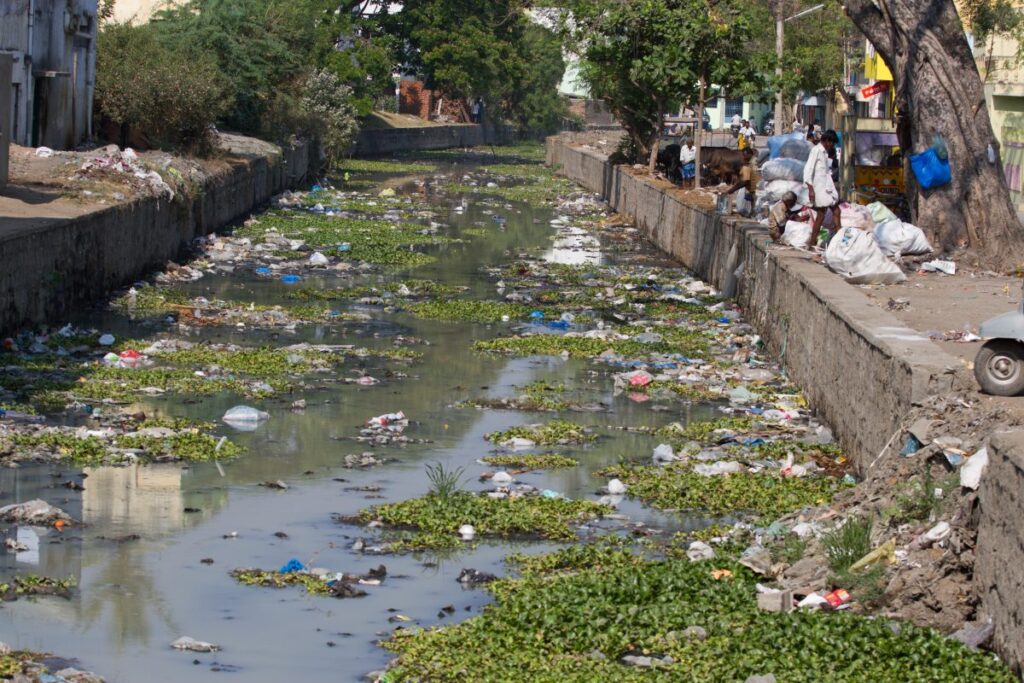In March this year, the Indian government announced a measure to curb pollution — banning the importation of waste plastic. This policy will come into force from August.

The measure was suggested following similar policies being implemented in China in order to curb the amount of plastic waste imported from other nations, particularly those in the West. The measure may be a necessary move in order to address the situation of excessive plastic waste in India. Currently, there is a great disparity between the amount of plastic waste generated in the country and the amount collected for disposal. Greater still is the gap between the amount generated and the amount recycled.
Importing plastic waste for the purpose of recycling eases the burden of other nations, but comes at the cost of India being less able to address its own build-up of waste plastic. Union Environment Minister Prakash Javadekar was queried about plastic waste during Question Hour in the Rajya Sabha on June 24th. The minister claimed that around 20,000 tonnes of plastic waste are generated every day in the country, of which only 13,000 to 14000 tonnes are collected.
Some reports cite higher rates of waste plastic generation. 26,000 tonnes was the estimated figure around the time of the proposal for the new legislation, indicating that the actual amounts may be higher than the Minister’s estimation. Similarly, in the 2017-18 period, India consumed 16.5 million tonnes of plastic whilst official estimates pegged the amount of plastic produced at just 1.6 million tonnes. The disparity between reported consumption and production further suggests that official estimates are missing the full picture when it comes to plastic. This may be down to inadequacies in data collection.
As previously reported by Health Issues India, a Central Pollution Control Board (CPCB) estimate of India’s plastic waste generation was based on data reported from just fourteen of the country’s 35 regional pollution boards. The implication of this is that as much as forty percent of India’s plastic waste output goes unaccounted for.
A number of other measures have been put in place to curb levels of pollution, with a particular focus on air pollution. This is a blight to both rural and urban India that is estimated to have caused 1.2 million deaths in 2017 due to a host of health effects and shears more than a year and a half off of citizens’ life expectancies.
Some of these measures will have an immediate effect, such as the development of expressways around New Delhi, intended to divert around 60,000 trucks from driving through the city. Other suggestions appear largely symbolic, such as teaching school children how to grow trees. Although countering deforestation is indeed good for the environment and a challenge India needs to take, this needs to be on a considerable scale above what could be accomplished through school projects.
Regardless of any small-scale suggested changes, it is clear that India needs considerable political and industrial measures to be implemented in order to address the pollution crisis. India houses seven of the ten most polluted cities in the world. Recent evidence has suggested that even a short stay in these cities is harmful to health. Long-term exposure to these pollutants is proving lethal in a staggering number of cases. More must be done to alleviate India’s pollution burden and improve its environmental health or public health will continue to suffer for generations to come. Addressing plastic waste is an important way of doing this.
With approximately eighty percent of plastic in India discarded as waste – and a slim proportion of this recycled – plastic often finds its way into the ocean or to landfill sites. The former increases exposure to a number of toxins while the latter pollutes groundwater and the air – not to mention the disastrous immediate effects on those living nearby.
India’s environmental health crisis is a multi-pronged problem, in which plastic waste plays a key role. Ceasing the import of plastic from other nations is an important step, but it must be accompanied by a national effort to ensure plastic is processed and recycled to mitigate the effects on the environment and on health.

